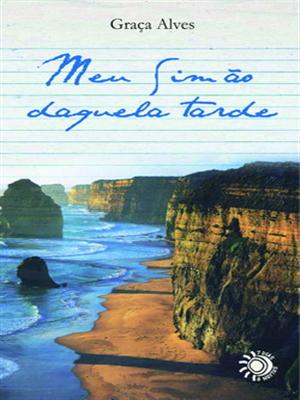There are critics who say that the great female characters are often written by men and vice versa.
GA: It happens often. It's usually easier for me to write about women. A male character requires a greater effort, a redoubled work, and another type of thinking, reading other things. I often use in my writing a woman narrator who speaks in the first person, it's easier for me, it seems that the pen runs faster. Here was an exercise.
You often write short stories. These texts were a rehearsal for the novel, or you like to develop the stories?
GA: I struggle with what many authors have also that it is lack of time. I have to work, earn a living because I do not live of the writing. It is a matter of time, a novel requires a lot of availability, read, much thinking about the characters and the text itself. The tales are shorter narrative, more concise writing that is faster and comes more quickly. This book is almost a romance and I steal that expression of Miguel Sousa Tavares. When I go to schools to speak and they call me a writer, I think I'm still little. This may not be my novel. I think each book is an essay for one that is either better, because then its worth.
Are you already preparing another work?
GA: Every day I write and not necessarily for a novel. I have a text, another novel almost done, has been done according to the available time, because life has other requests and therefore is something almost ready. I do not say it's done, because nothing is done if I do not deliver to the editor and only then do not touch it anymore, because while it is in my drawer I keep thinking about it.
Let us take another work, you wrote the "counter current"? It was a necessity?
GA: It was. A necessity. Contrary to what one might think, I had no problems, did not suffer in the skin the tragedy, have not lost anything, or none of my closest relationships suffered nothing in the face of what happened. I was one week at home because the school was closed, I am a teacher. I had no television, no telephone and only thing I had was one radio with batteries, and we even had no light for a few hours, because I live near the river of Joao Gomes. I did not know about what was happening during that time and had a need to release this anxiety. On one hand, wanted to help, on the other I had the notion that would be unhelpful and I also had people with me. That week I wrote because I needed to free myself. I decided I would not do it to own benefit and then I donated the copyright to the volunteer firefighters of Madeira. I decided it would be them, because they were those who were closest to me.
The short tales were the stories you heard?
GA: I did not go out, I not did field work, even. The characters do not exist. The story of the saint is true and I happened to tell this beautiful miracle, this myth, because of its inner beauty and that people will take what in a search for hope. The fact is that the chapel collapsed. There are actual facts in these tales; the stories themselves are not real. If it happened was a coincidence.









